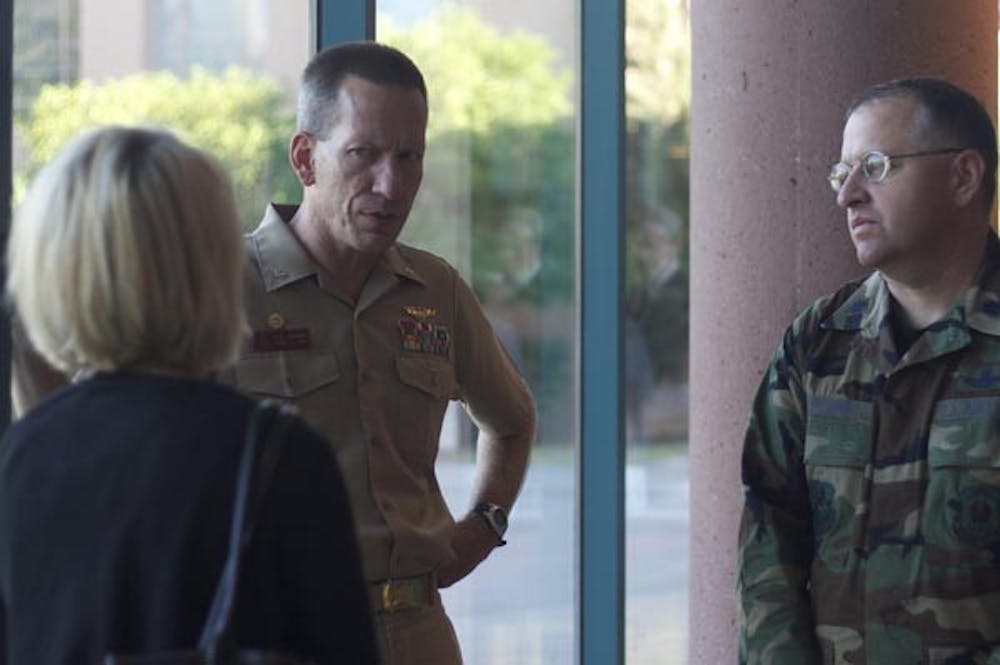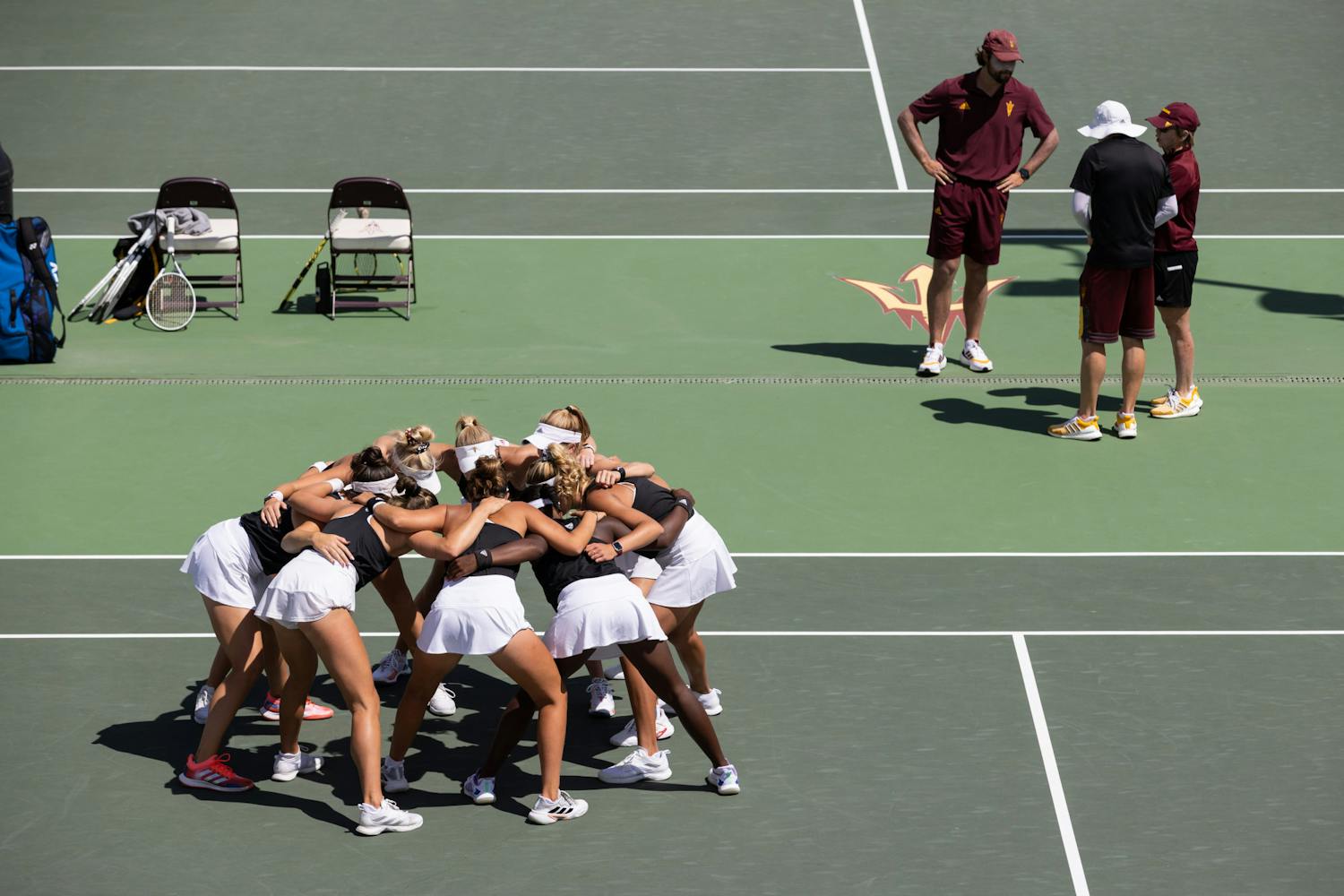Military officials and U.S. Rep. Harry Mitchell, D-Ariz., gathered on the Tempe campus Thursday to recognize legislation that has provided student veterans with financial and housing assistance for more than a year.
The Post-9/11 GI Bill was signed into law July 2008 and took effect August 2009. The law provides support for the education and housing of those who served on active duty on or after Sept. 11, 2001.
There are about 1,000 ASU students receiving benefits from the Post-9/11 GI Bill out of the 1,700 veterans and dependents receiving benefits on campus, said Kent Hopkins, the vice provost for enrollment.
Mitchell, who co-sponsored the bill, admitted there had been problems since the law took effect, including delays in receiving tuition and paperwork. But the problems have since been solved, he said.
“I am pleased to understand there is a minimum number of problems,” he said.
Mitchell said he supported the bill because of the opportunity it provided veterans.
“I believe they can be the most productive, innovative and successful members of society,” he said
Mitchell also said he was pleased that the funding was available to veterans for 15 years because it was designed to serve veterans with different family situations.
Capt. Steven Borden, the head of the U.S. Naval Reserve Officer Training Corps, also said he thought the length of availability was important for veterans.
“It gives them time to transition out of the military,” Borden said.
Civil engineering freshman Karl Kalliokosky served as part of the U.S. Army Reserve in Afghanistan until July. He said the GI Bill allowed him to go to school this fall.
He added that he thought veterans’ events on campus like Mitchell’s speech were a good idea to connect members of the military.
“Since I just got out, getting thrown into the mix is a little complicated,” Kalliokosky said.
Lance Lamoreaux, the Military Advocate for ASU students, connects veterans with academic, financial and medical services. He said the event was held not only to celebrate the anniversary to connect veterans but also to let them know about the resources available.
“Veteran networks are essential because it provides support,” Lamoreaux said.
As an institution, ASU has been recognized for its support of veterans. It is in the top 15 percent of “Military Friendly Schools for 2010,” as selected by G. I. Jobs magazine, because of its proactive activities to help veterans adjust to college life, Lamoreaux said.
ASU also participates in an additional provision of the 9/11 bill called the Yellow Ribbon Program.
As a participating institution, ASU voluntarily pays half of the remaining tuition expenses after veterans receive their Post-9/11 GI Bill. Veteran Affairs matches those funds to fully cover their tuition expenses, Mitchell said.
Reach the reporter at mary.shinn@asu.edu





